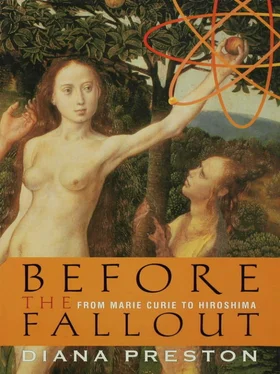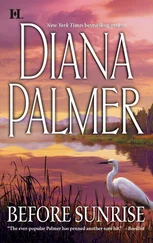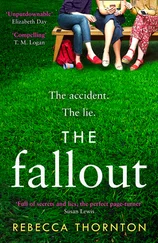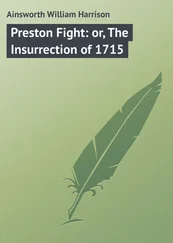For most of the war, the moral dilemmas posed to scientists in Axis countries and in those under German occupation, such as Denmark and France, had been starker and carried immediate personal vulnerability. The ambiguities and uncertainties of the Copenhagen meeting in 1941 between the leading German nuclear physicist Werner Heisenberg and Niels Bohr have been widely explored. However, others also strove to reconcile personal conscience and patriotic sentiment. Fritz Strassmann, one of the discoverers of fission, hid a Jewish pianist in his Berlin apartment while working on nuclear calculations for the Nazi government. Before later joining the Resistance and helping liberate Paris, Marie Curie’s son-in-law, Frederic Joliot-Curie, had to decide how far he could acquiesce in German use of his nuclear institute in Paris at a time when the prospects of Allied victory seemed remote.
The majority of Allied scientists involved would maintain that Oppenheimer’s apologia was unwarranted. Knowledge was neutral; the use to which politicians put it was the dilemma. In any case, the Allies could not have neglected the weapon’s potential when they knew that the Germans had embarked on a weapons research program. That an Allied team had won the race on behalf of the democracies was preferable to any other outcome.
Whichever view the scientists took, the final decision to use the bomb was a political one, and one which the American and British public supported overwhelmingly on the grounds that it saved Allied lives and brought the war to a speedier end than would otherwise have been the case. With hindsight and with distance from the feelings of individuals in war-weary nations who were apprehensive of the cost in the lives of their loved ones of an invasion of Japan, historians have questioned the political judgments. They have suggested that there were alternatives to the use of the atomic bomb to end the war—alternatives which would have saved Japanese lives without sacrificing Allied ones.
• • •
The moral issues that faced both the physicists in advising on the use of the bomb and the politicians in deciding upon it were, in fact, at least half a century old. Alfred Nobel, the inventor of nitroglycerine and the founder of the Nobel Prizes, not least for peace, had justified his invention as putting an end to war. In 1899, at the time of Marie Curie’s pioneering work on radium, the nations of the world had met at The Hague to discuss how to avoid conflict by the creation of systems for arbitration. They had also laid down in the Hague Convention rules for the conduct of war if it could not be avoided. Among them, four years before the first powered flight, was a prohibition against bombarding “by whatever means… undefended” civilian towns or buildings and another prohibition against the dropping of bombs from balloons “or other kinds of aerial vessels.”
A second conference was held at The Hague in 1907 at the instigation of President Theodore Roosevelt to review the provisions of the first. Only twenty-seven countries, including Britain and the United States, supported renewal of the ban on aerial warfare. Seventeen, including Germany and Japan, did not, and so the provision fell. All could agree, however, with a definition of targets permitted to be bombarded by whatever means. Civilian targets were still excluded, but aerial bombardment had gained legitimacy.
World War I brought science and warfare together in a way no other had. On the evening of 22 April 1915, Germany launched the world’s first poison gas attack, releasing 168 tons of chlorine onto the French and Canadian lines. The German scientist in charge of the program defended the use of gas as a means of shortening the war and thus saving lives. After initially condemning the attacks as further breaches of the rule of civilized law by the barbarous “Hun,” Britain, France, and later the United States, after its entry into the war, did not long delay in following suit. By the armistice, Allied production of chemical weapons far exceeded Germany’s. The First World War would come to be known as the “Chemists’ War.” By the end of the conflict, about 5,500 scientists on all sides had worked on chemical weapons alone, and there had been one million casualties from gas attacks. Among them was Lance Corporal Adolf Hitler, who, temporarily blinded by a British gas grenade on 13 October 1918, was still in the hospital the day Germany surrendered nearly a month later. Yet this “war to end wars” would not do so, and the next world conflict, precipitated by that lance corporal, would be the physicists’ war.
The First World War had seen the death of some 10 million men, the fall of three empires, the establishment of a major communist state, as well as the emergence of the airplane as a weapon. Yet, at postwar conferences, countries were lukewarm about defining further rules for the conduct of air warfare. No agreement was ever ratified. Over the years, the definition of what in the previously agreed documents was “civilian” and thus free from attack became blurred. At the beginning of the Second World War, President Franklin Roosevelt pleaded with the belligerents to refrain from “bombardment from the air of civilian populations or unfortified cities.” The 1940 memorandum from two émigrés to the British government arguing that an atomic bomb was feasible and urging the immediate start of a research program suggested that the very likely high number of civilian causalities “may make it unsuitable as a weapon for use by this country.”
Yet over the next five years of increasingly total war the Allied air forces followed the precedents set by their enemies and attacked whole cities such as Hamburg, Dresden, and Tokyo, in the latter attack using the newly developed “sticky fire”—napalm. Even before 6 August 1945 any distinction between civilians and combatants had been eliminated in practice, if not in presentation.
Today we still experience the scientific, political, and moral fallout from 6 August 194£. Against the tumultuous background of the history of the first half of the twentieth century, Before the Fallout explains how joy in pure scientific discovery created a beautiful science that was suddenly transmuted into a wartime sprint for the ultimate weapon. Through the stories and voices of those involved, it tells how individuals responded to the questions of personal responsibility posed by the results of their compulsive curiosity and why the bomb fell on Hiroshima and its people and changed our world forever.
ONE
“BRILLIANT IN THE DARKNESS”
TOWARD MIDNIGHT in a Paris garden on a warm June night in 1903, an attentive group watched Pierre Curie take a vial from his pocket and hold it aloft. The radium inside shone “brilliant in the darkness.” Curie’s gesture was a tribute to his wife, Marie, the discoverer of radium. Earlier that day this slight woman with her high-domed forehead and intense, gray-eyed gaze had become the first female in France to receive a doctorate. The occasion was an impromptu celebratory dinner party at the villa of one of the Curies’ friends, scientist Paul Langevin.
Marie Curie, born in 1867, was the youngest child of a progressive-minded Polish teacher of physics and mathematics, Wladislaw Sklodowski. She had left her native Warsaw, where women were barred from the university, for Paris, driven by a determination to study science and to do so in a free society. As a sovereign entity, Poland no longer existed. The three rival empires of Germany, Austro-Hungary, and Russia had partitioned Marie’s homeland between them. The Sklodowskis, a close-knit, intellectual family, lived in Russian Poland, where Polish culture was crudely suppressed and “Russianized.” In adolescence Marie had risked prison or deportation to Siberia by studying and then teaching at the clandestine “Floating University” in Warsaw—a radical Polish night-school for young women. The university’s aim was to develop a cadre of committed women capable, in turn, of educating Poland’s poor and thereby equipping them to resist Russian oppression. To avoid suspicion, the students gathered in small groups in impromptu classrooms in the cellars and attics of those bold enough to host them.
Читать дальше












